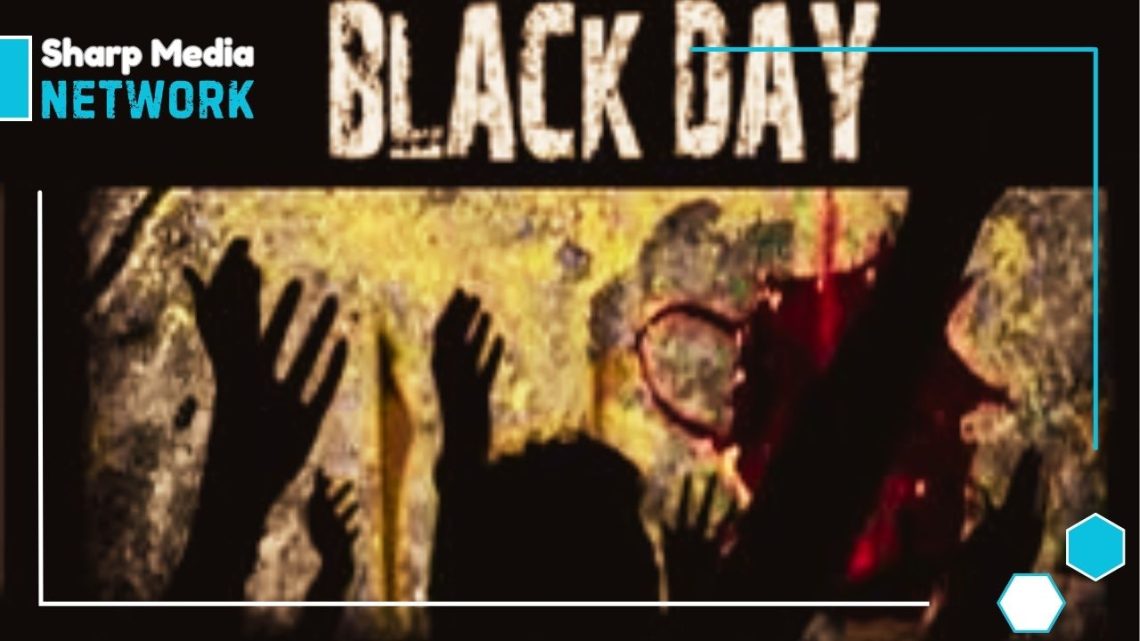
Kashmiris Mark Black Day Today on India’s Republic Day
January 26, 2025As India celebrates Republic Day, Kashmiris around the world mark the day as Black Day, calling attention to their ongoing struggle for self-determination and justice under Indian occupation.
Today, on India’s Republic Day, Kashmiris around the world observe a solemn occasion known as Black Day, in protest against India’s continued occupation of Jammu and Kashmir and its ongoing violations of international laws and human rights. The day is marked as a reminder of the unfulfilled promise made to the Kashmiri people—the right to self-determination—and a call to expose the true nature of India’s so-called democracy.
The India’s Republic Day has become an important moment for Kashmiris to reflect on the deep injustice they face. Despite India’s claims of being the world’s largest democracy, the reality in Indian Illegally Occupied Jammu and Kashmir paints a different picture. Indian authorities have consistently denied Kashmiris their fundamental rights, including their right to self-determination as promised by the United Nations and other international entities. The Kashmiri struggle for freedom remains suppressed, with India’s occupation over the region increasingly seen as oppressive and unjust.
Under the leadership of Narendra Modi, India has taken steps that have further exacerbated tensions in IIOJK. Modi’s government has been accused of using religious extremism to gain political power, engaging in election manipulation, and following an agenda that promotes division, including acts of violence against minority groups both in IIOJK and across India. The revocation of Article 370 in August 2019, which stripped IIOJK of its special status, is one of the most blatant moves in defiance of the Kashmiri people’s will and the promises made by India to the international community. This move not only violated the rights of Kashmiris but also disregarded the resolutions of the United Nations Security Council.
The oppression of the Kashmiri people extends beyond political decisions. Religious, cultural, and social symbols important to the region, such as the revered shrine of Ajmer Sharif, have also been targeted under Modi’s regime. By rewriting history and manipulating cultural landmarks, the Indian government has inflicted wounds on the hearts of its own citizens, further alienating Kashmiris and others who believe in peace and coexistence.
On this day, the Black Day observance is a powerful statement against India’s actions, urging the world to recognize the truth behind its claim of being a democracy. For Kashmiris, India’s refusal to grant them their rightful self-determination only highlights the hypocrisy at the heart of India’s political rhetoric. Without addressing the aspirations and rights of the Kashmiri people, India’s claims to being a true democracy remain questionable.
As the situation in IIOJK continues to evolve, concerns have also arisen regarding international events, particularly regarding Pakistan’s participation in activities organized by India. A recent event, the “Undivided India” initiative by India’s Meteorological Department, sparked debate after a map was released in 2020 showing Azad Kashmir as part of India. This move has been seen as a direct challenge to the sovereignty of Azad Kashmir and the broader Kashmir dispute. It is crucial for Pakistan to carefully consider its involvement in such events, ensuring that the Kashmir issue remains front and center in international discourse.
As the Black Day observances continue, Kashmiris remain steadfast in their commitment to the pursuit of justice, freedom, and self-determination. The fight for Kashmir is not just a political struggle but a moral one, where the right to self-determination is fundamental and must eventually be granted. The ongoing sacrifices of the Kashmiri people will not be forgotten, and their resolve to achieve freedom remains unwavering, despite the oppression they face.

